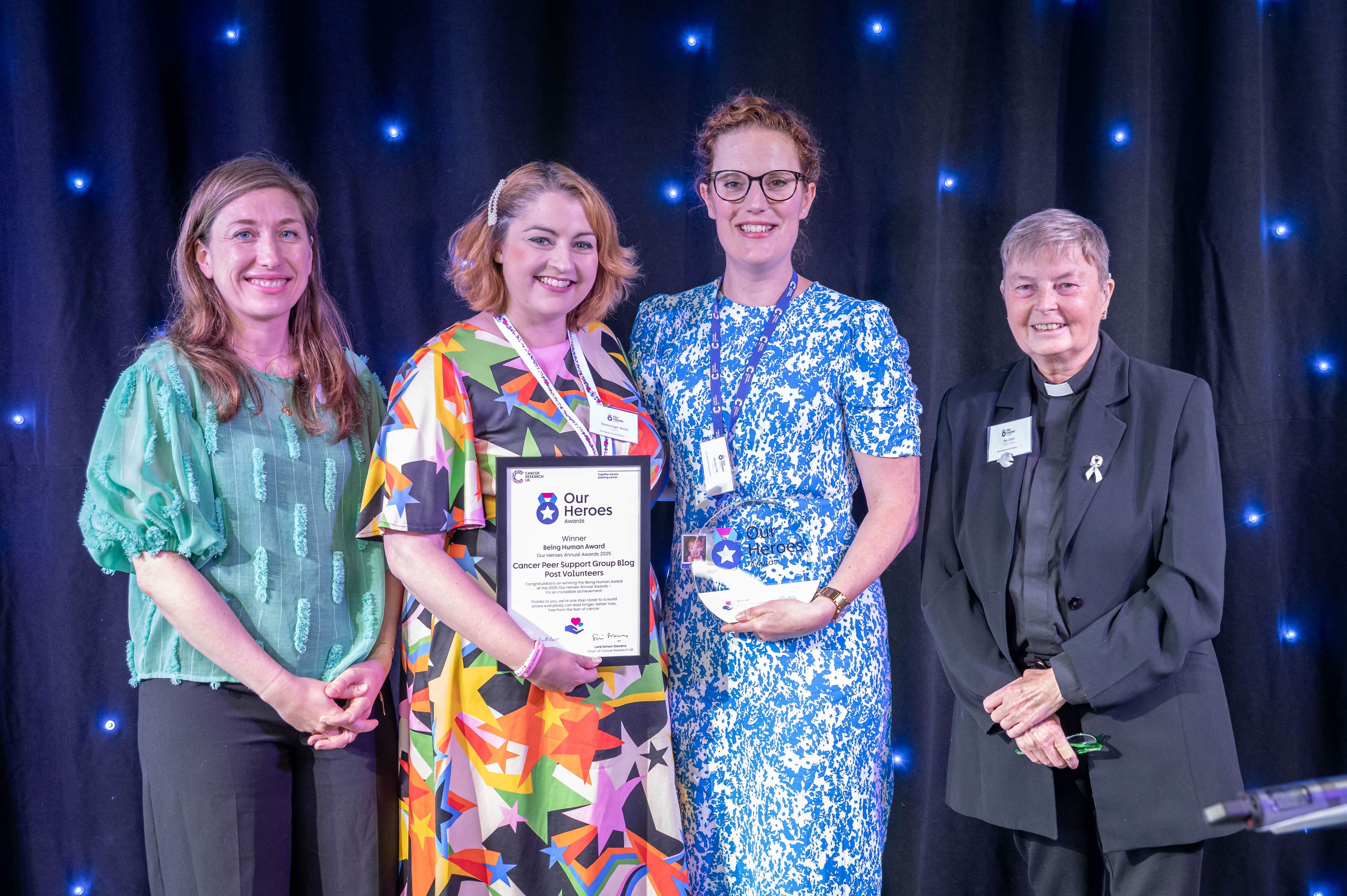
Kes’s spirit remains unshaken. Friend and fellow Involvement Network member Ally Boyle encouraged Kes to get involved with Cancer Research UK, and since then, Kes has contributed to various projects, driven by a passion for equality and survivor wellbeing.
This year, Kes joined the judging panel for the Our Heroes Annual Awards and presented at the ceremony. Reviewing the nominations was mind-blowing. There were so many impressive individuals and teams, and the judging day offered a deeper insight into the organisation’s work. The event was expertly coordinated, and the thoughtful questions from fellow panelists made the experience even more meaningful.
Kes believes strongly in the importance of patient involvement.
To the Cancer Research UK staff who were nominated, Kes offers a quote that encapsulates their impact:
Through their work, patients like Kes are reminded that their experiences matter and that progress is possible.
Involving people affected by cancer in staff events like these is so important. Their lived experiences bring depth, authenticity, and insight that help shape research, celebrate progress, and remind us all why the work matters. It’s not just about recognition, it’s about connection, collaboration, and creating a future that reflects the voices of those who’ve lived it.